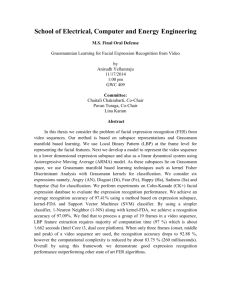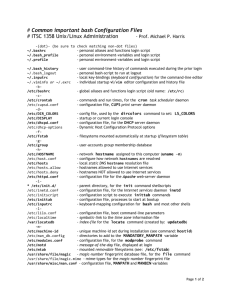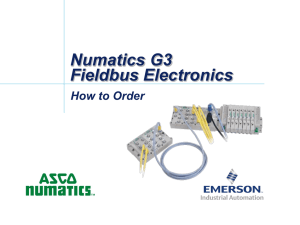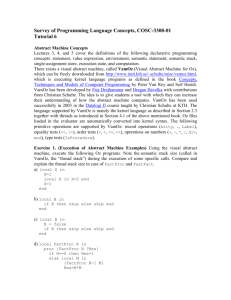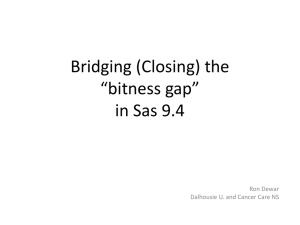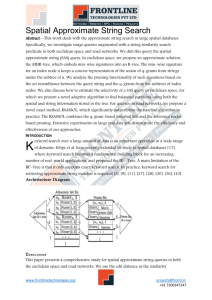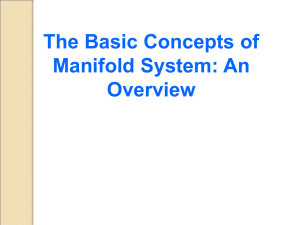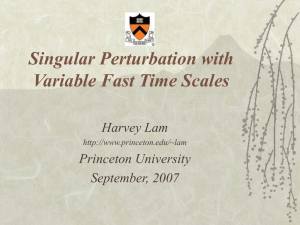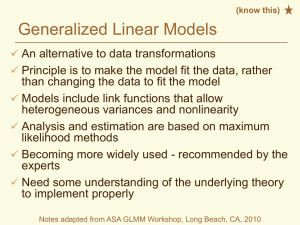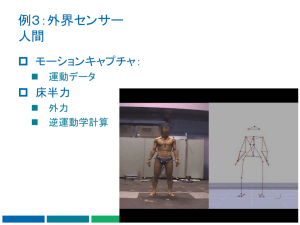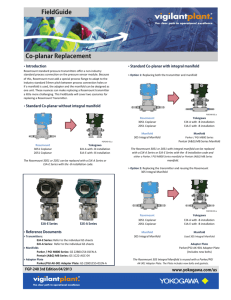Face Recognition Using Laplacianfaces
advertisement
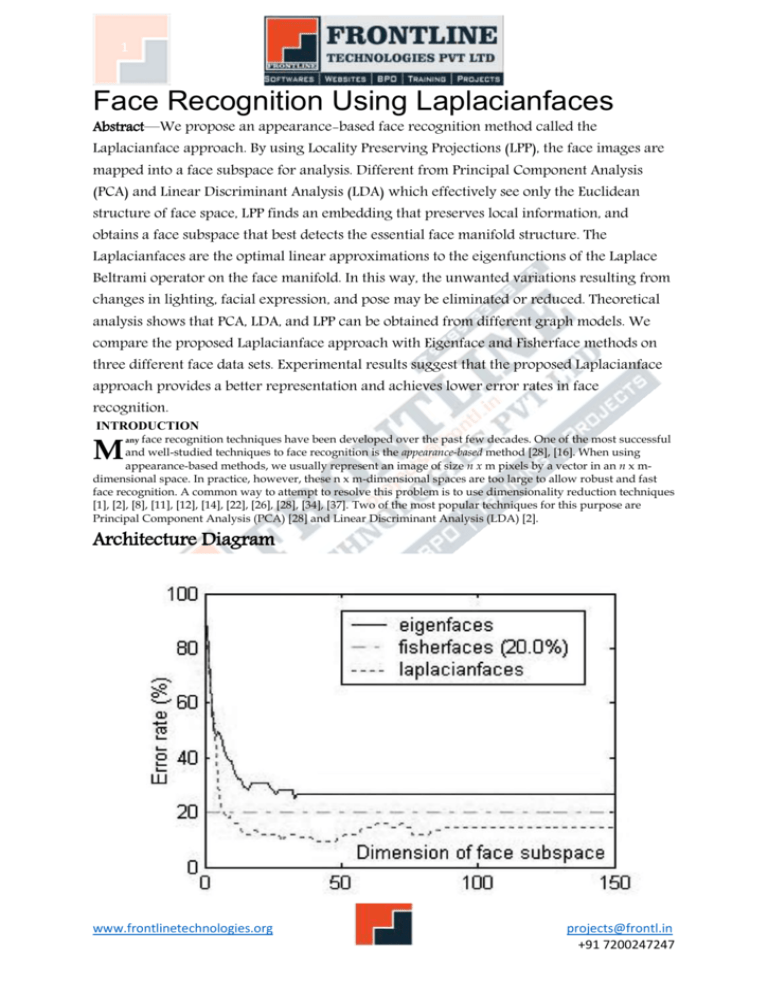
1 Face Recognition Using Laplacianfaces Abstract—We propose an appearance-based face recognition method called the Laplacianface approach. By using Locality Preserving Projections (LPP), the face images are mapped into a face subspace for analysis. Different from Principal Component Analysis (PCA) and Linear Discriminant Analysis (LDA) which effectively see only the Euclidean structure of face space, LPP finds an embedding that preserves local information, and obtains a face subspace that best detects the essential face manifold structure. The Laplacianfaces are the optimal linear approximations to the eigenfunctions of the Laplace Beltrami operator on the face manifold. In this way, the unwanted variations resulting from changes in lighting, facial expression, and pose may be eliminated or reduced. Theoretical analysis shows that PCA, LDA, and LPP can be obtained from different graph models. We compare the proposed Laplacianface approach with Eigenface and Fisherface methods on three different face data sets. Experimental results suggest that the proposed Laplacianface approach provides a better representation and achieves lower error rates in face recognition. INTRODUCTION recognition techniques have been developed over the past few decades. One of the most successful and well-studied techniques to face recognition is the appearance-based method [28], [16]. When using appearance-based methods, we usually represent an image of size n x m pixels by a vector in an n x mdimensional space. In practice, however, these n x m-dimensional spaces are too large to allow robust and fast face recognition. A common way to attempt to resolve this problem is to use dimensionality reduction techniques [1], [2], [8], [11], [12], [14], [22], [26], [28], [34], [37]. Two of the most popular techniques for this purpose are Principal Component Analysis (PCA) [28] and Linear Discriminant Analysis (LDA) [2]. M any face Architecture Diagram www.frontlinetechnologies.org projects@frontl.in +91 7200247247 2 CONCLUSION The manifold ways of face analysis (representation and recognition) are introduced in this paper in order to detect the underlying nonlinear manifold structure in the manner of linear subspace learning. To the best of our knowledge, this is the first devoted work on face representation and recognition which explicitly considers the manifold structure. The manifold structure is approximated by the adjacency graph computed from the data points. Using the notion of the Laplacian of the graph, we then compute a transformation matrix which maps the face images into a face subspace. We call this the Laplacianfaces approach. REFERENCES 1. A.U. Batur and M.H. Hayes, "Linear Subspace for Illumination Robust Face Recognition," Proc. IEEE Int’l Conf. Computer Vision and Pattern Recognition, Dec. 2001. 2. P.N. Belhumeur, J.P. Hespanha, and D.J. Kriegman, "Eigenfaces vs. Fisherfaces: Recognition Using Class Specific Linear Projection," IEEE Trans. Pattern Analysis and Machine Intelligence, vol. 19, no. 7, pp. 711-720, July 1997. 3. M. Belkin and P. Niyogi, "Laplacian Eigenmaps and Spectral Techniques for Embedding and Clustering," Proc. Conf. Advances in Neural Information Processing System 15, 2001. 4. M. Belkin and P. Niyogi, "Using Manifold Structure for Partially Labeled Classification," Proc. Conf. Advances in Neural Information Processing System 15, 2002. 5. M. Brand, "Charting a Manifold," Proc. Conf. Advances in Neural Information Processing Systems, 2002. 6. F.R.K. Chung, "Spectral Graph Theory," Proc. Regional Conf. Series in Math., no. 92, 1997. 7. 8. 9. 10. Y. Chang, C. Hu, and M. Turk, "Manifold of Facial Expression," Proc. IEEE Int l Workshop Analysis and Modeling of Faces and Gestures, Oct. 2003. R. Gross, J. Shi, and J. Cohn, "Where to Go with Face Recognition," Proc. Third Workshop Empirical Evaluation Methods in Computer Vision, Dec. 2001. X. He and P. Niyogi, "Locality Preserving Projections," Proc. Conf. Advances in Neural Information Processing Systems, 2003. K.-C. Lee, J. Ho, M.-H. Yang, and D. Kriegman, "Video-Based Face Recognition Using Probabilistic Appearance Manifolds," Proc. IEEE Conf. Computer Vision and Pattern Recognition, vol. 1, pp. 313320, 2003. www.frontlinetechnologies.org projects@frontl.in +91 7200247247
